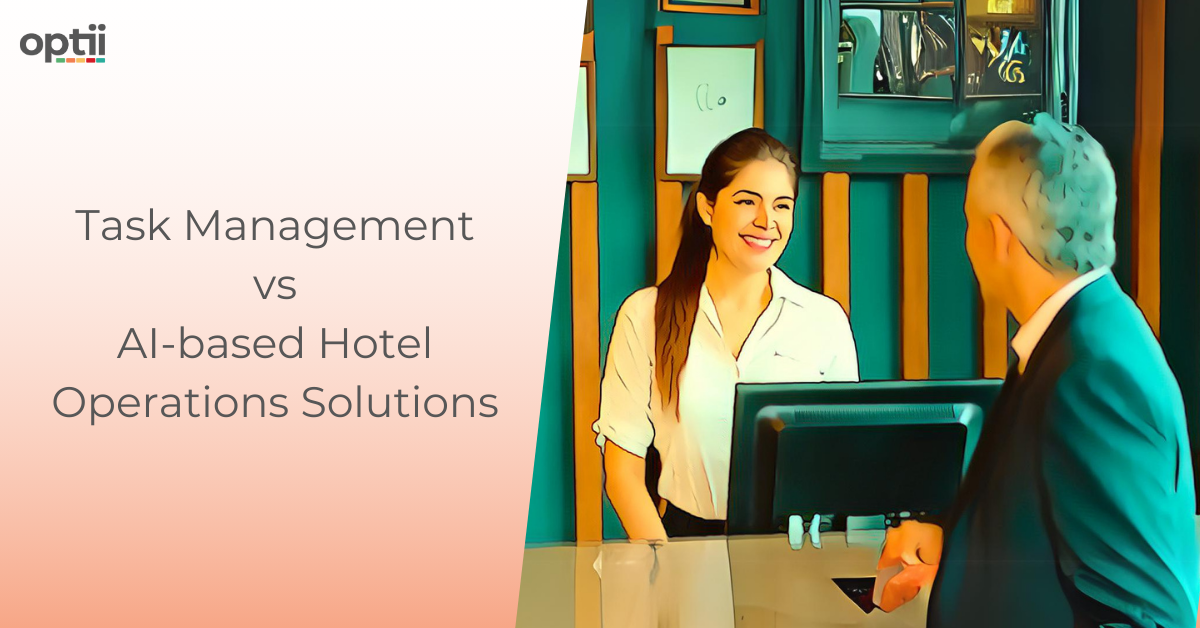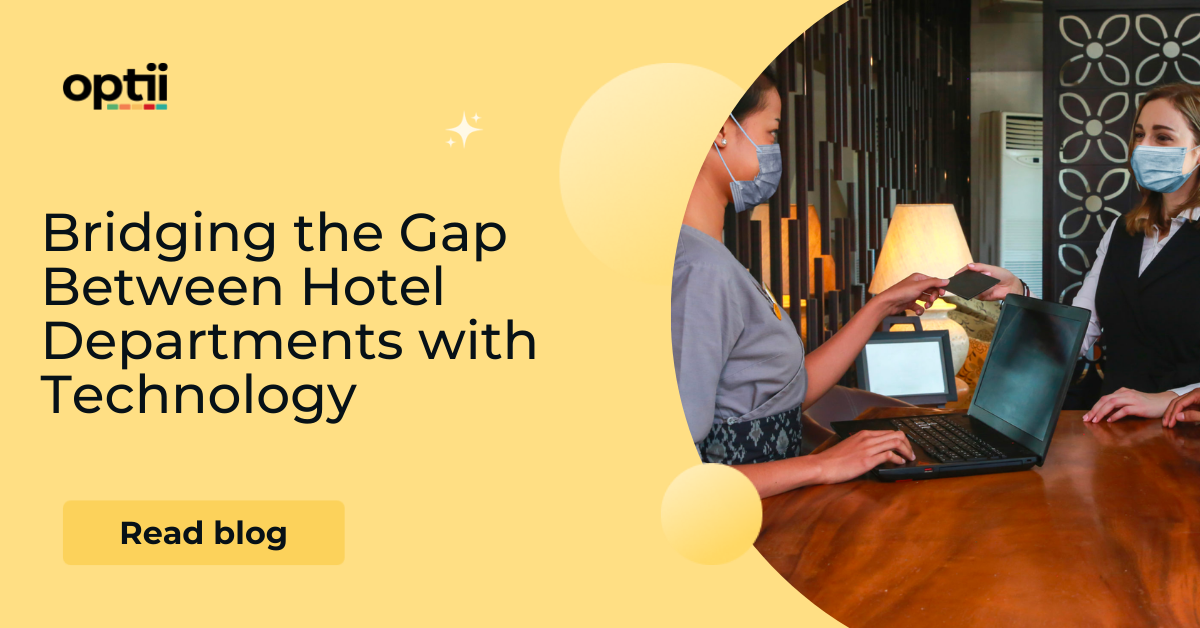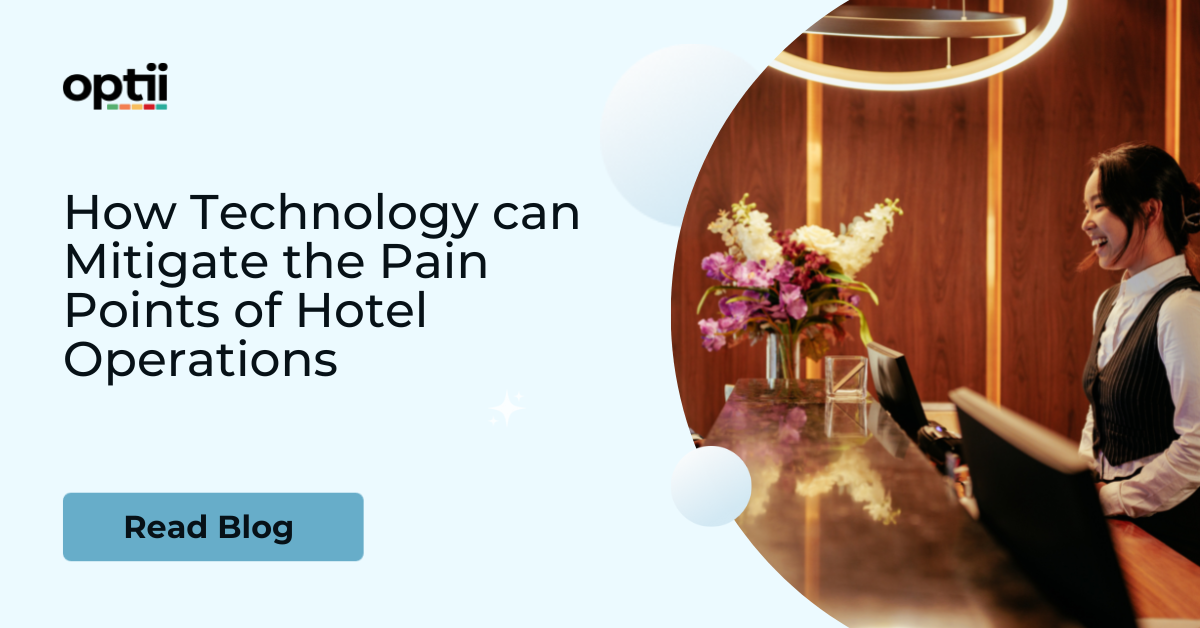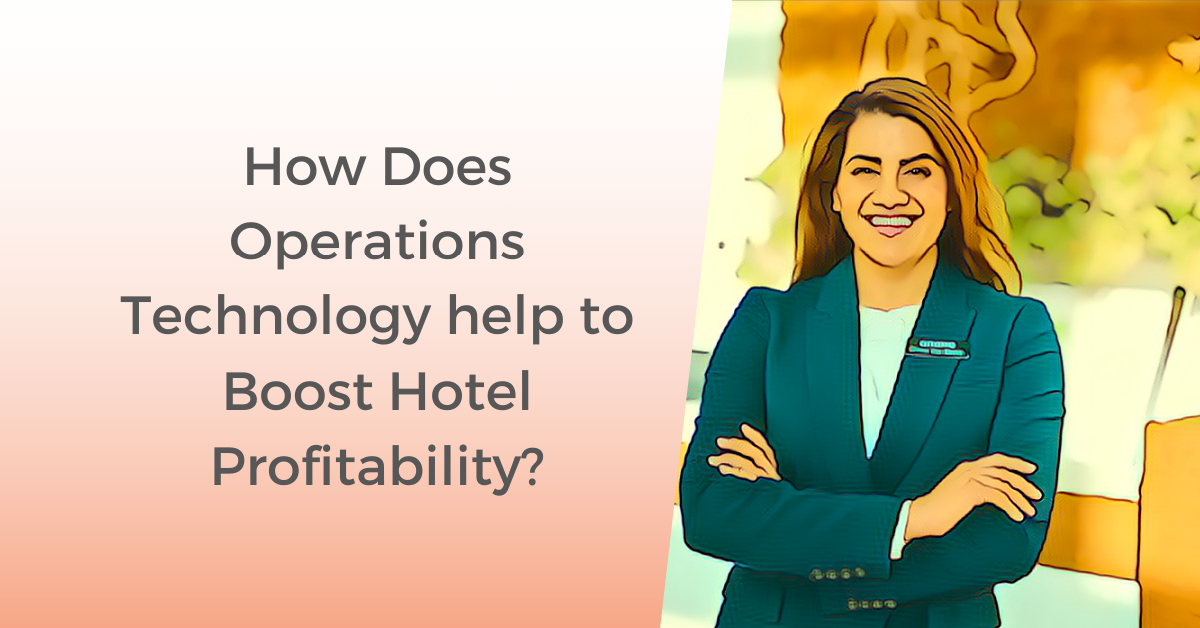Artificial Intelligence (AI) is a topic on everyone’s agenda at the moment, but is something we’ve been exploring in hotel operations for a long time. Optii has been at the forefront of AI integration in hotel operations solutions for years and is one of the few products on the market to offer this capability. So, what are the benefits of AI-based hotel operations technology when compared to traditional task management solutions?
AI-based hotel operations solutions improve workflow, increase productivity, and enable better forecasting, helping to boost job satisfaction and profitability throughout the hotel. In contrast, purely task-based solutions that rely on simple checklists lack the data to learn and improve over time – leading them to stagnate after an initial productivity boost.
Improved workflow across the hotel
AI-based hotel operations solutions offer increased efficiency due to their predictive technology and automation. AI uses data to reduce time spent on low-value tasks and finds cost savings that drive profitability for the hotel.
Tasks such as scheduling timetables each morning can be automatically completed using housekeeping technology saving significant amounts of manager time. The repurposed time can be used for other essential responsibilities that help support the guest experience. While a task management tool is preferable to pen-and-paper, it would still require a high input level for the system to continue to produce productivity gains.
Beyond this, hotel operations technology has been proven to reduce radio calls between the front and back staff because guest requests and jobs can be auto-assigned based on housekeeper availability. This would not be possible with task management-based solutions because tasks would need to be assigned manually, impeding the hotel's ability to allocate tasks at short notice and adapt to evolving hotel needs.
AI-based systems can also regularly update staff on changing protocols such as extended stays and delayed cleans, making sure everyone is up to speed. The enhanced communication between departments improves accountability and transparency ensuring everyone feels confident that tasks will be completed on time.
Increased productivity and efficiency
Ongoing labor shortages and heightened guest expectations mean that hotels must take full advantage of technology to mitigate some of these challenges. Housekeeping is the most expensive department for most hotels, so the time saved here can have a major impact on cost savings in the long run.
AI-based hotel operations solutions can map out the most efficient route for housekeepers which enables them to spend more time cleaning rooms rather than walking between rooms. The increase in productivity and efficiency, results in faster room turnaround time for guests so they no longer have to wait for extended periods in the lobby. As task management solutions do not collect data, they cannot record information on the distance between rooms or how long it takes each cleaner to reach the room. This information is essential for AI to accurately predict and recommend the most time-efficient route for housekeepers.
AI housekeeping systems can also better monitor and manage room inventories by automatically tracking usage and sending replenishment alerts. Ultimately, AI makes the lives of staff members easier as allocated tasks are set and the work is streamlined and optimized.
Long-term planning and forecasting
Without data, it’s much more challenging to predict the future. Task management solutions do not take advantage of data, which means they cannot forecast for peak occupancy periods. For example, if the balance between the number of seasonal staff hired does not match occupancy levels, then this can lead to serious financial consequences and impact the guest experience.
AI's predictive capabilities can help hotels plan for the number of staff needed, allowing the hotel to avoid overpaying for labor while ensuring enough staff to guarantee an excellent guest experience. AI is also vital for Preventative Maintenance, as the tool provides data on asset usage and repair frequency which can be used to inform future purchasing decisions. By analyzing vast amounts of data, AI systems can provide useful insights that help hotel managers make informed decisions about scheduling, hiring practices, and budgeting.
AI-based hotel operations technology offers many advantages over task management solutions when it comes to workflow, productivity, efficiency, and planning. AI harnesses data to automate and optimize tasks, reducing time spent on low-value activities and driving up profitability. While the implementation of task management solutions may lead to an initial increase in productivity, it eventually plateaus because it does not continue to learn and improve operations. It’s clear that AI is the future and it's up to hoteliers to take advantage of this technology to stay ahead of the competition.






